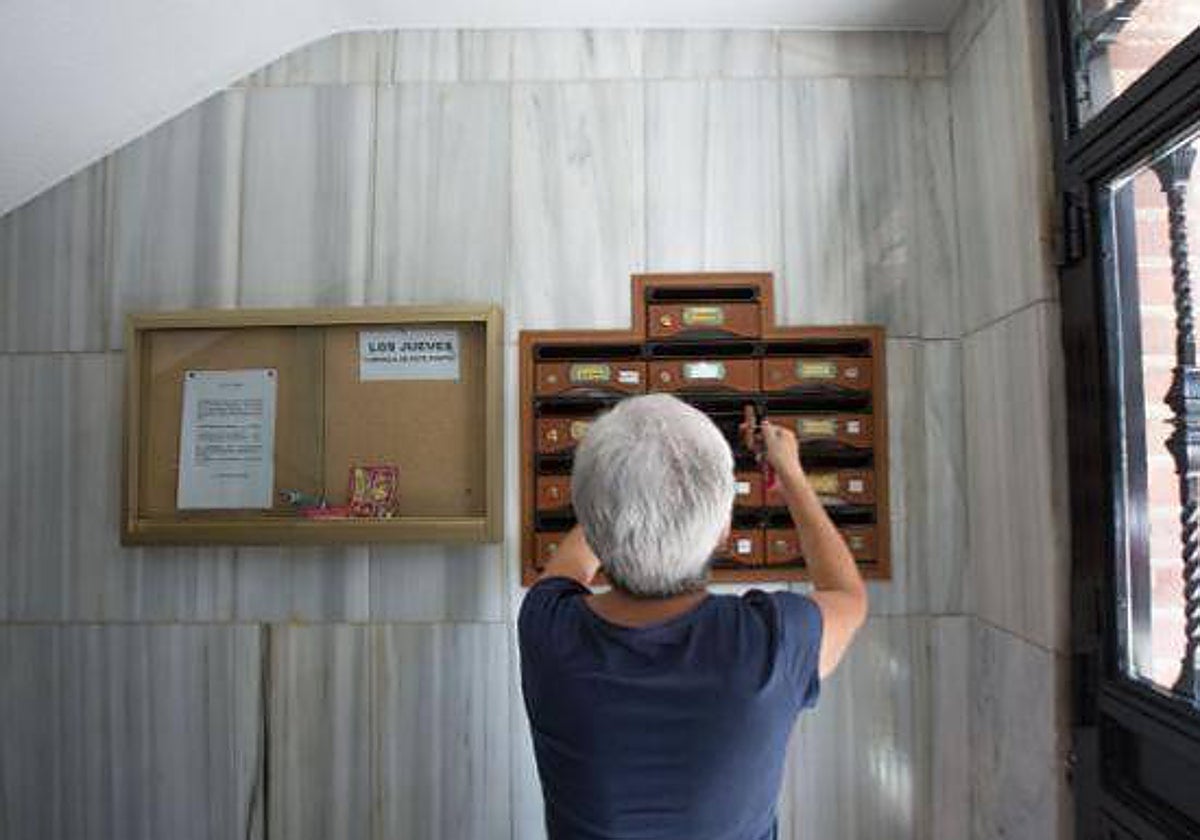What's the latest on security cameras in common areas of residential blocks? Spain's supreme court rules they are legal
The highest court in the land has rejected the claim of a resident who wanted the CCTV on the public landings in her block of flats removed because her right to privacy had been violated
A homeowners' or community association in Spain may install video surveillance cameras in all the common areas of the building provided that the majority of the homeowners agree and that access to the recordings is limited. This has been endorsed by the Supreme Court in a recent ruling, as it considers it to be a proportionate measure to maintain the security of the residents, similar to having peepholes in entrance doors to flats or a concierge who controls access to the block.
The court has dismissed the lawsuit brought by one resident against her community's decision to install a video surveillance system to prevent acts of vandalism such as the one suffered by a neighbour prior to the installation of the system.
The plaintiff considered that her right to privacy had been violated and that they should be removed, and she also sought damages of 2,500 euros for non-pecuniary harm. According to the case details, the three-storey building was inhabited by two neighbours, who were related to each other, and the plaintiff, who admitted that her relationship with them was not good.
She alleged that cameras had been installed on the landing of each floor, focusing on the door on each floor. She further alleged that the camera on her floor could monitor the comings and goings of guests and family at her flat and could even record the interior of her home when the door was opened, thus filming two of the rooms inside her property.
A provincial court in Madrid had previously dismissed the lawsuit after verifying that the agreement to install the cameras had been done in accordance with the requirements of the Horizontal Property Law (more than 3/5 majority of the shares voting in favour). Also that the decision by the community to install CCTV was preceded by an act of vandalism suffered by the neighbour on the first floor of the block of flats, so that the ultimate purpose of the installation of these cameras was to prevent situations such as the one that had occurred previously.
Resolution of Spain's data protection agency
In the first hearing of this case in court it was also discovered that only the CCTV technician or the administrator could access the recordings, so the Spanish data protection agency had rejected the claimant's complaint for this and other reasons. The additional reasons are that it was noted that the installation of the cameras had been notified with information signs, that no images of the public road had been recorded, that the interior of the property had not been focused on (with the exception of the entranceway) and that the images were not kept for more than 30 days. The judge also considered it proven that the cameras did not record the interior of the home. So Madrid's provincial court upheld the previous court's decision.
The Supreme Court states that, "contrary to the appellant's assertion, the Court of First Instance ruled that the cameras installed in the common areas of the building do not allow images to be captured inside the plaintiff's home. Therefore, they only capture images in the common areas of the building."
In the final judgement, which was drafted by Judge Rafael Sarazá, consideration was given to the fact that the installation of cameras of this type might affect the right to privacy of the neighbours to a certain degree, even if they can only capture and record images in the common areas of the building. For this reason, it requires "a legitimate title for such installation and that the impact on the right to personal and family privacy of the neighbours caused by the installation of the video surveillance system is proportionate."
For the Supreme Court, in the case under examination, the legitimate title exists since the installation of said video surveillance system was the object of a resolution of the owners' meeting of the building adopted with the necessary requirements for the adoption of resolutions in these meetings and with the 3/5 majority required by article 17.3 of the Horizontal Property Law for this type of resolution.
Principle of proportionality
With regard to the principle of proportionality in the limitation of the fundamental right to personal and family privacy, the judgement explains that the installation of such a video surveillance system is "suitable for the legitimate purpose of protecting the security of neighbours and their property."
The court concludes that its necessity can be considered "reasonably justified by the occurrence of acts of vandalism in the building prior to its installation, without it having been alleged that there is any other more moderate measure for the achievement of the stated purpose."
Lastly, the ruling points out that the impact on the applicant's right to personal and family privacy is not disproportionate, not only because the installation and operation of the cameras was known to the neighbours, including the plaintiff, and because only images of the common areas of the building are captured, but also because of the precautions taken to safeguard the images and to ensure that access to the images recorded by the system is very limited.
Right to privacy
In accordance with the doctrine of Spain's Constitutional Court, the ruling explains that the right to privacy, like all rights, is not an absolute right and that in a building under horizontal property laws it can be known, by various means, who accesses the building and even who accesses certain properties within the building, which entails a limitation of the neighbours' right to privacy.
For example, doors are often fitted with peepholes that allow residents to see who is passing by, or a concierge service may be arranged, in which case the concierge may be aware of who is entering the building and may even be able to find out to which flat the person entering the building is going.
Therefore, it considers that "it would be excessive to prevent neighbours from having a peephole in the door of their homes or to deny the possibility of establishing a concierge service because such measures affect the right to privacy of the residents of the building. These are limitations of this right to privacy in accordance with the social customs that delimit the protection of this fundamental right (art. 2.1 of Organic Law 1/1982, of 5 May) and which are justified by the protection of the security of the people living in the building and their property, and by the appropriate service to the building."

